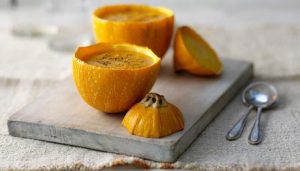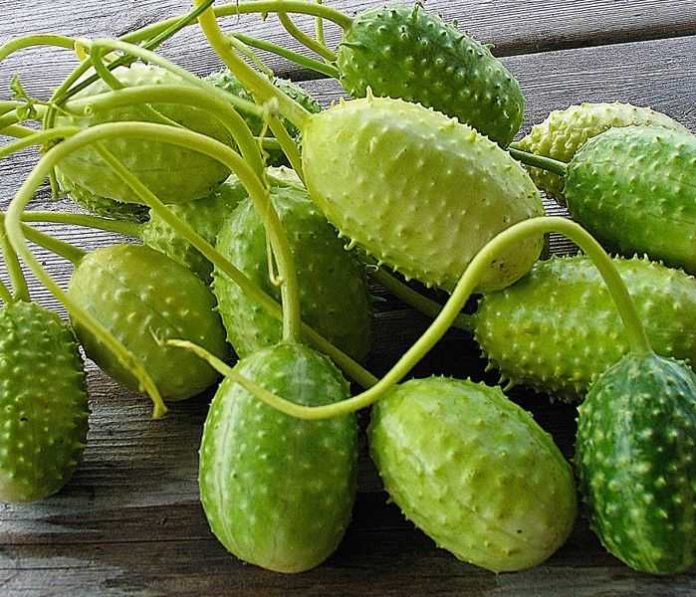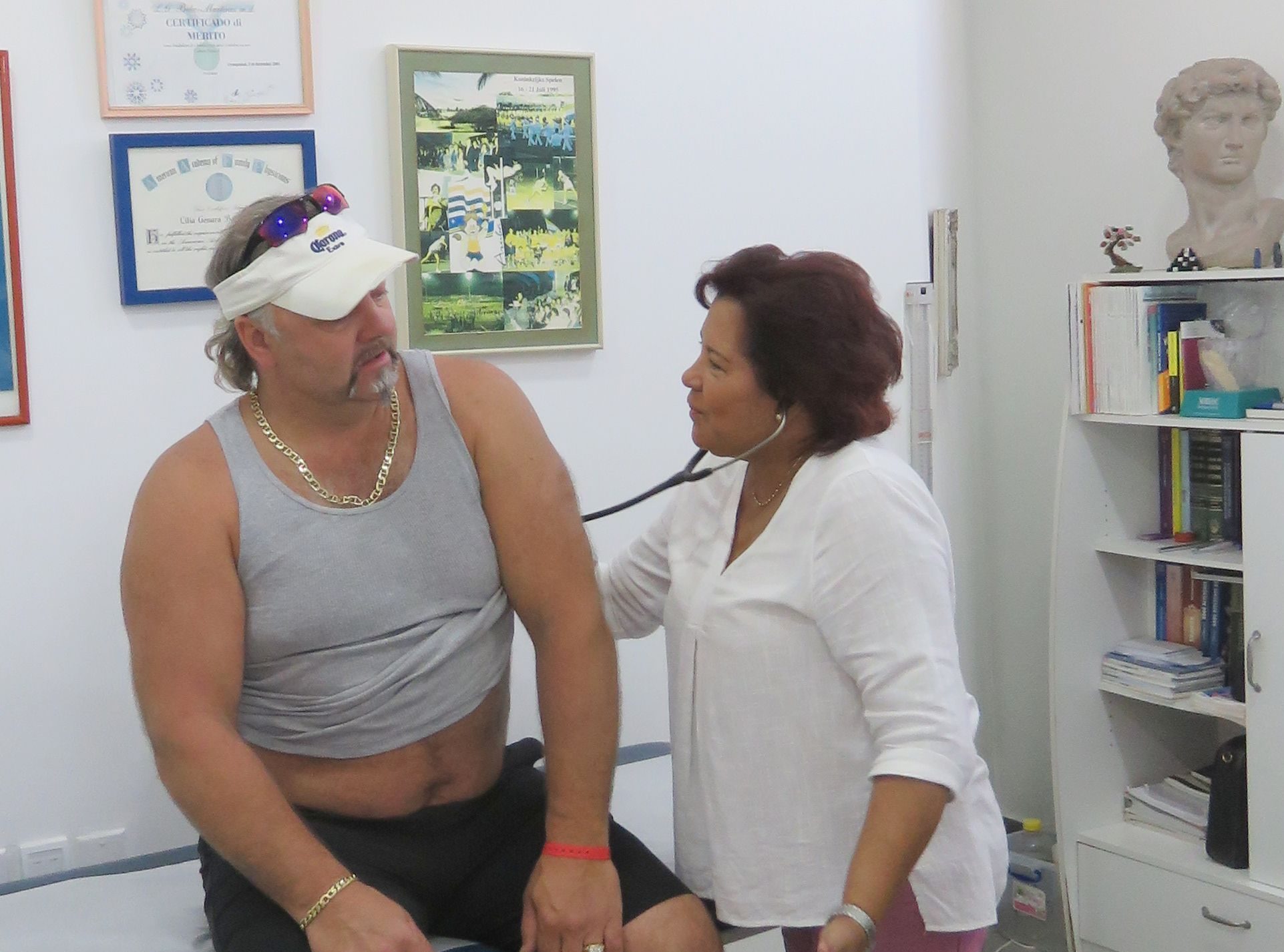Fresh fruits make a tropical holiday’s picture complete. Whether you see the mango’s hanging in the trees or the fresh fruit cocktail on the side table of your pool bed, the link is there: you are in the tropics. Aruba grows her own fruits and veggies and there are some pretty out-of-space local species you may never had heard of, but really healthy and delicious.
Mispel
This is a fruit with a character (5-10 cm/2-4 inches). It does not ripe until it is picked or falls off the tree. Mispel is hard with a sandpaper like texture when immature, soft and juicy when ripe. It’s technically a berry, but contains a skin similar to that of a kiwi. It’s grainy and sweet, with a light, musky flavor. The sap or gum from the tree is also a source of ‘chicle’ the original ingredient used to make chewing gum. Rich in tannins, antioxidants shown to contain anti-inflammatory compounds, and vitamin C, essential for healthy immune function. Season: year- round.
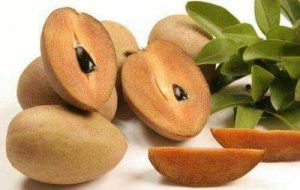
When it comes to veggies the island certainly offers a home-grown selection. They taste delicious and have their specific talents to boost your immune system. Start the day with a ‘batida’ (smoothie) enriched with a local veggie touch or select your restaurant that offers local vegetable dishes to get the real pure taste of it.
Konkomber chiquito
This is a sort of local squash, but looks like a cucumber with prickly skin. The taste however is bitterer than the cucumber and the vegetable is smaller in size but bigger in width. Inside is a soft, fleshy pulp and seeds, just like the cucumber. Konkomber chiquito is grown in the island and used in salads and ‘stoba’ (stew) or on its own in vinegar. The veggie contains multiple B vitamins, including vitamin B1, vitamin B5, and vitamin B7 (biotin). B vitamins are known to help ease feelings of anxiety and buffer some of the damaging effects of stress. Additionally this veggie is rich in two of the most basic elements needed for healthy digestion: water and fiber. Season: year- round.
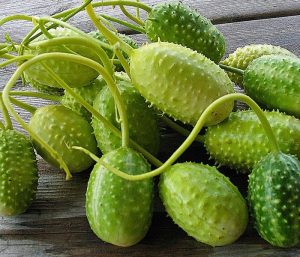
Kenepa
Ovoid green fruit that grows in bunches on trees up to 30m high. The fruit is related to the lychee and have tight, thin but rigid skins. Inside the skin is the tart, tangy, or sweet pulp of the fruit covering a large seed. The pulp is usually cream or orange colored. Kenepa strengthens the immune system, and prevents the reproduction of bacteria and viruses in the body. This fruit is highly recommended to treat lung infections and urinary tract infections. It also helps to cure insomnia and rejuvenates the nervous system. Season: the fruit typically ripen during the summer.
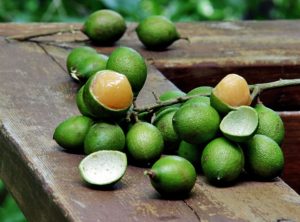
Druif
There is no chance you did not bump into one of the sea grape trees while spending your vacation on Aruba. The sea grape plant is often used in ocean-side landscaping in sandy soil right on the beach and it produces clusters of fruit that resemble grapes. Are sea grapes edible? Yes, they are. Animals enjoy sea grapes and humans can eat them as well, and they are used to make jam. They contain very low calories and sugar, enabling good bacterium to digest food and excrete waste quickly which is effective in preventing constipation. Season: Sep-Oct.
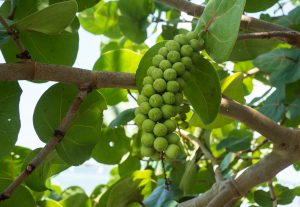
Shimarucu
Maybe Aruba’s most popular wild fruit tree. You may have noticed cars at the side of the road and people picking those red berries. Well, that’s Shimarucu. The local habit to stop for these delicious fruits goes from generation to generation. Its fruit’s degree of sour depends on the amount of rain it gets. Red Shimarucus tend to taste better than orange. The fruit has super power: a true vitamin bomb. Adults only need to eat 3-4 of these berries to meet their daily recommended amount of Vitamin C. Season: Rainy months (Oct-Jan).
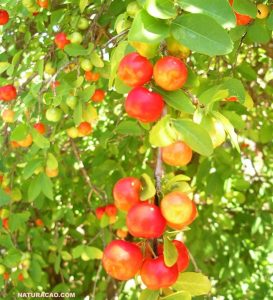
Tamarind
A delicious, sweet fruit that has a wide variety of uses and applications, both for medicinal and culinary purposes. It is a medium-sized bushy tree with evergreen leaves and fruit that develops in pods characterized by long, brown shells. Inside is a sticky, fleshy, juicy pulp, which is the Tamarind fruit. Both sweet and sour in taste, the fruit contains a significant level of vitamin C, as well as vitamin E, B vitamins, calcium, iron, phosphorous, potassium, manganese, and dietary fiber. There are also a number of organic compounds that make tamarind a powerful antioxidant and anti-inflammatory agent. Season: March.
When it comes to veggies the island certainly offers a home-grown selection. They taste delicious and have their specific talents to boost your immune system. Start the day with a ‘batida’ (smoothie) enriched with a local veggie touch or select your restaurant that offers local vegetable dishes to get the real pure taste of it.
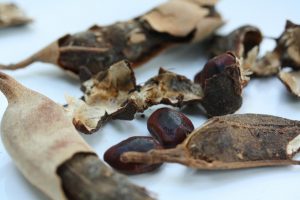
Yambo
Family of Okra, also known as ‘lady’s fingers’: a green flowering plant. Okra belongs to the same plant family as hibiscus and cotton. A classic favorite dish in Aruba is Sopi di yambo. It has long been favored as a food for the health-conscious. It contains potassium, vitamin B, vitamin C, folic acid, and calcium. It’s low in calories and has a high dietary fiber content. Recently, a new benefit of including okra in your diet is being considered. Okra has been suggested to help manage blood sugar in cases of type 1, type 2, and gestational diabetes. Season: year- round.
Bonch’i Cunucu
A long, small bean, boiled for a side dish or snack. Long beans have a chewy, crunchy texture–more so than snap beans–and a flavor reminiscent of the dry navy bean or asparagus. Besides stir-fry, soups and salads, the long bean is a good choice for stewing, braising (to remain chewy and firm), sautéing, shallow frying, and deep frying. With cooking, the long bean’s bean flavor intensifies. Long beans are low in calories, about 45 calories per cup, and rich in vitamin A and also contain vitamin C and potassium. Season: year-round.
Pampuna
In the endless summer of Caribbean living we only have to concern ourselves with a wet season and a dry season. Still we do indulge heavily in the pleasures of pumpkin and enjoy Caribbean pumpkin recipes year round. A popular dish in Aruban restaurants is Sopa Di Pompuna, don’t miss it. This dish is made of pumpkin soup, and parsley. Pumpkins are rich in flavonoid polyphenolic antioxidants such as xanthin, lutein and carotenes and also contain vitamins. Pumpkin seeds are a good source of omega-3 fatty acids, vitamins, minerals and proteins. Pumpkins are used to make desserts, breads and soups.
